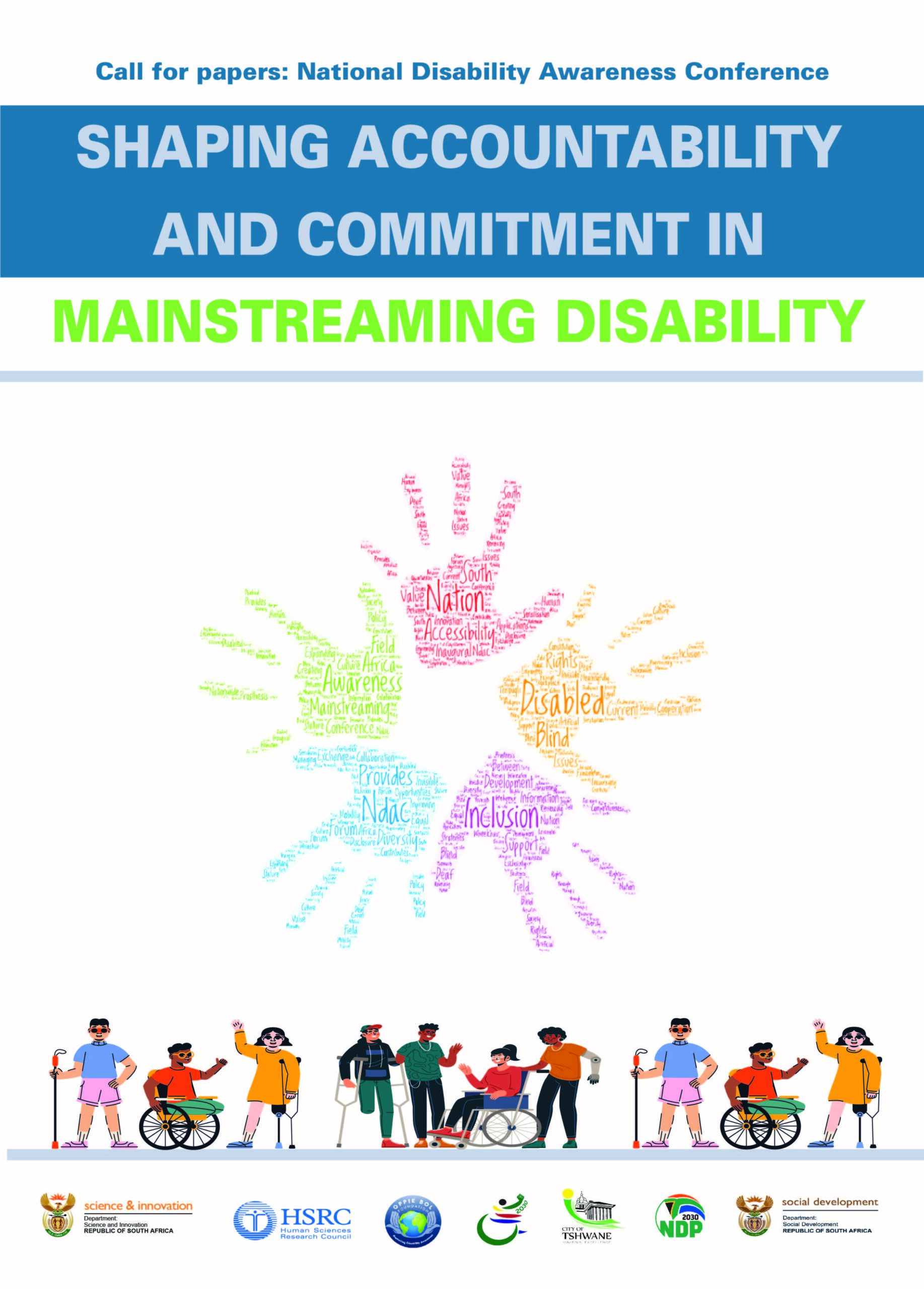Call for Papers
The Oppie Bol Foundation (OBF) and the Human Sciences Research Council (HSRC) are excited to
announce the inaugural National Disability Awareness Conference from 22 – 24 March 2023 in
Pretoria, Tshwane.
This conference will take a holistic approach to examining the barriers facing persons with
disabilities presented by an inaccessible infrastructure (inaccessible public services and
transport, inaccessible information, and communication, as well as attitudes and assumptions. The
sessions will focus not only on best practice in the public and private sectors, but also examining
and presenting solutions to existing barriers and exploring ways of incentivising accessibility and
universal design.
Persons with disabilities also contribute to the make-up of our society as equal and active
participants. However, like other socially oppressed groups their contribution to the melting pot
is seldom taken as valid and worthwhile. One result of such invisibility is that the image created
of persons with disabilities by society at large is one of passiveness and dependency. This is
associated with the old model which pwd’s were not recognised for their abilities and contributions
in society.
NDAC IS NOW INVITING PROPOSALS FOR PAPERS TO BE PRESENTED AT THE 1ST NATIONAL INAUGURAL CONFERENCE
NDAC 2023 provides a forum for the exchange of information on current developments, applications
and opportunities in the expanding field of disability. It encourages collaboration and cooperation
between academics, professionals, researchers, policymakers, and scholars towards mainstreaming
disability issues and improving accessibility nationwide.
MACRO THEMES
The overall theme is supported by a series of macro-themes, including:
• Accessibility
• Disability inclusion – creating a disability inclusive culture where the value of diversity
contributes meaningfully to innovation and competitiveness
• Reviewing strategies for disability inclusion
• Encouraging disclosure through awareness and policy support
• Disability sensitisation and awareness
• Providing mobility for the blind
• Invisible disabilities in the workplace
• Managing employees with disability
• Technology for a better life
In addition, we welcome both traditional papers and other media, such as artwork, documentary film,
music.
Click HERE to read the full document

